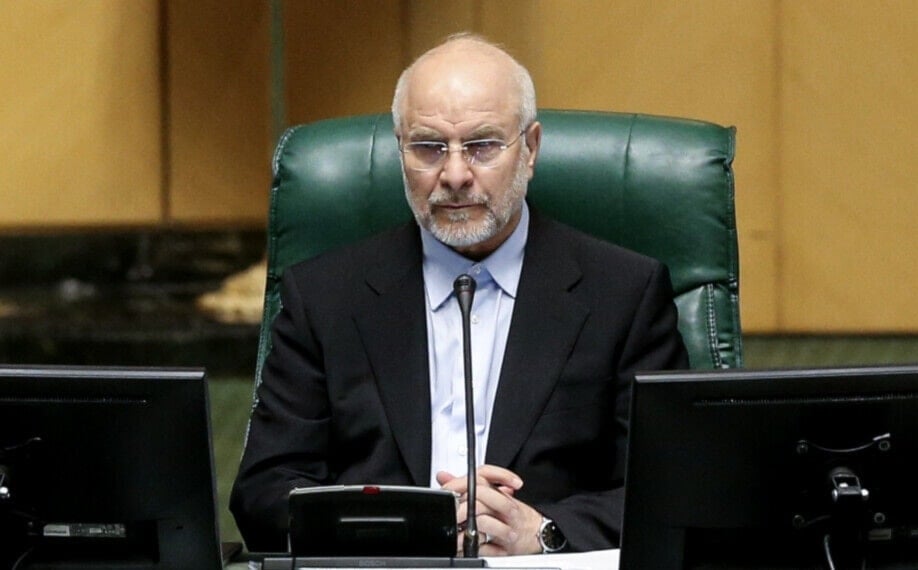US must accept consequences of aggression against Iran: Ghalibaf
Iran’s Parliament Speaker Mohammad Bagher Ghalibaf condemns the US for its “blatant act of aggression” against Iran following Trump's admission of being behind the Israeli war.
-

Iran’s Parliament Speaker Mohammad Baqer Ghalibaf presides over a session of the Shura Council in Tehran, Iran, November 9, 2025. (IRNA)
Iran’s Parliament Speaker Mohammad Bagher Ghalibaf condemned on Sunday the United States for its “blatant act of aggression” against the Islamic Republic, demanding that Washington be held accountable for the deadly joint Israeli-American assault earlier this year.
Speaking during an open session of Parliament, Ghalibaf referred to US President Donald Trump’s recent remarks in which he acknowledged being “very much in charge of” the June attacks, saying the confession amounted to “an explicit admission of direct responsibility.”
“Following the US president’s explicit admission of direct responsibility for the Zionist regime’s aggression against Iran, which constitutes a blatant violation of international law, the United Nations Charter, and our national sovereignty, I, on behalf of the noble and honorable people of Iran, strongly condemn this heinous act,” Ghalibaf said.
He added that “under international law, the US government must accept the legal, political, and military consequences of this blatant aggression, which has led to the martyrdom of many of our citizens.”
The Speaker underscored that the Iranian nation remains united and steadfast in confronting threats, vowing that aggressors will be held accountable.
Read more: Iran urges UN action after Trump admits US role in Israeli aggression
US-Israeli assault on Iran
"Israel" launched an unprovoked aggression on Iran on June 13, sparking a 12-day war that killed at least 1,064 people, including military commanders, nuclear scientists, and civilians. The United States later joined the offensive, striking three Iranian nuclear sites.
In retaliation, Iran's armed forces targeted strategic sites across Israeli-occupied territories and the US-operated Al-Udeid Air Base in Qatar, the largest US military installation in West Asia. Following that attack, a ceasefire was reached on June 24.
Strengthening Iran–Pakistan ties
Ghalibaf also highlighted the outcomes of his recent visit to Pakistan, saying it aimed to express Tehran’s gratitude for Islamabad’s support and to reinforce economic, cultural, and security cooperation.
He emphasized Pakistan’s strategic importance to Iran, noting the two nations’ deep cultural bonds and shared opportunities for defense and regional stability.
Speaking upon his return from a three-day visit to Pakistan on Friday, he said, “If border markets are developed and trade with Pakistan continues to flourish, much of the insecurity and border challenges between the two countries will be addressed, as turning border areas into centers of legitimate and large-scale economic activity would naturally reduce smuggling and insecurity while paving the way for greater stability and mutual prosperity."
The trip, which began on Wednesday at the invitation of Pakistan’s National Assembly Speaker Sardar Sadiq, included meetings with senior officials such as Acting President and Senate Chairman Yusuf Raza Gilani, Prime Minister Shehbaz Sharif, and Chief of Army Staff Asim Munir.
Read more: Iran, Pakistan boost border trade to strengthen ties, security

 3 Min Read
3 Min Read








